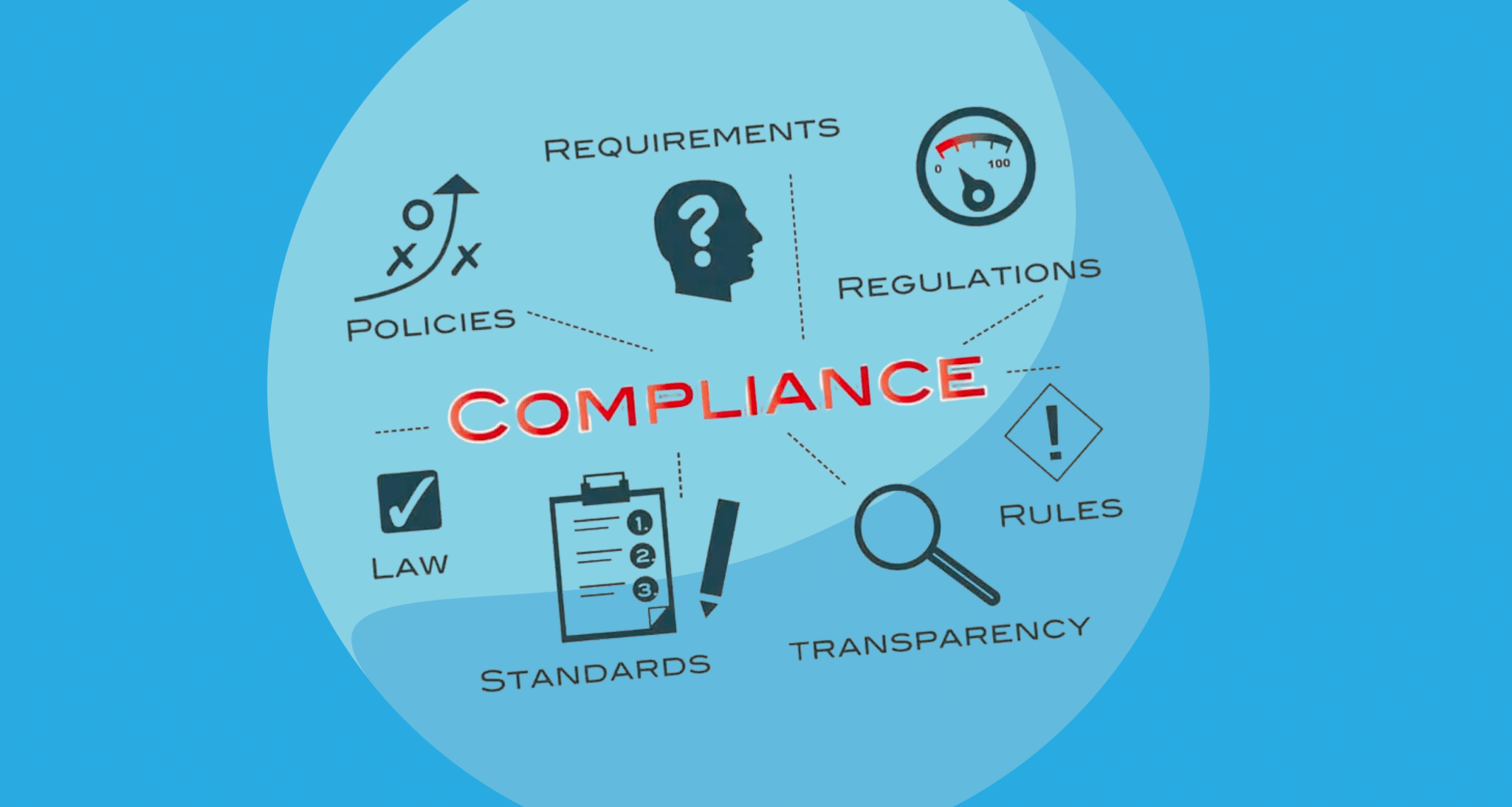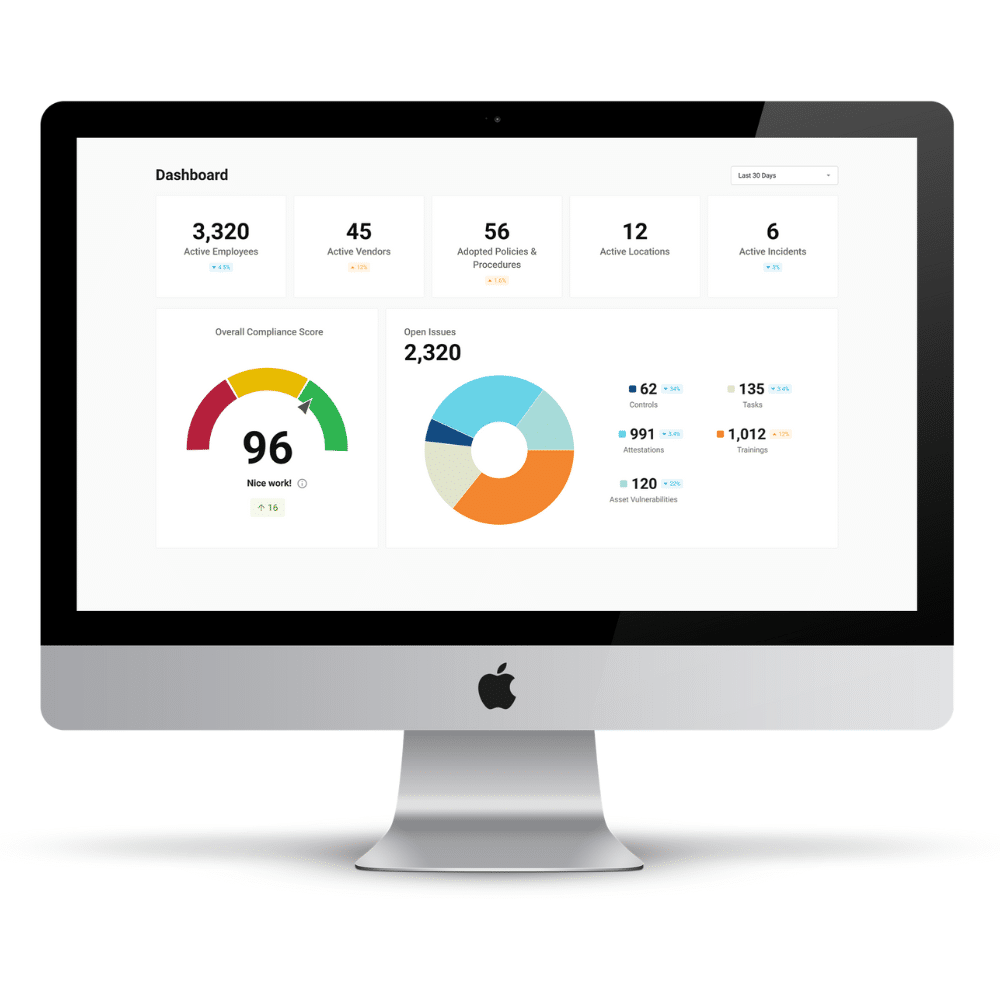As the healthcare landscape rapidly evolves, organizations must adhere to strict healthcare compliance standards. These standards ensure that healthcare providers maintain the highest level of integrity, transparency, and ethical conduct when delivering patient care.
Organizations must establish and implement an effective compliance program encompassing seven key elements to achieve this. Let us delve into these essential components and understand how they contribute to upholding healthcare compliance requirements.
The Seven Key Elements of Effective HIPAA Compliance Requirements: How They Come Into Play
The Seven Elements articulate the measures the Office for Civil Rights (OCR) has deemed essential to an effective compliance program. The Seven Elements guidelines are generally broad in scope to accommodate the differences among healthcare organizations.
The Seven Elements include:
- Implementing written policies, procedures, and standards of conduct.
- Designating a compliance officer and compliance committee.
- Conducting effective training and education.
- Developing effective lines of communication.
- Conducting internal monitoring and auditing.
- Enforcing standards through well-publicized disciplinary guidelines.
- Responding promptly to detected offenses and undertaking corrective action.
1. Policies and Procedures
Healthcare organizations must create comprehensive guidelines that outline the rules and regulations governing their operations.
These policies and procedures should cover various aspects, such as:
- Billing Practices
- Privacy Protection
- Code of Conduct
- Reporting Mechanisms for Potential Violations
By having well-documented policies in place, employees are aware of their responsibilities and can confidently navigate complex compliance scenarios.
2. Assigning a Designated Compliance Officer
This person oversees the organization’s adherence to healthcare compliance standards. This individual or group plays a crucial role in implementing the compliance program effectively. They act as a liaison between staff members and management, ensuring everyone remains informed about new healthcare compliance rules and regulations, providing necessary training sessions, conducting internal audits, and promptly addressing concerns.
3. Training & Education
All employees must receive regular training on healthcare compliance rules and regulations.
This includes educating them on the following:
- Fraud Prevention Techniques
- Proper Documentation Practices
- Patient Privacy Laws (such as HIPAA)
- Ethical Decision Making
By investing in ongoing education programs, organizations empower their workforce to make informed choices while delivering exceptional patient care.
4. Open Lines of Communication
Employees need a safe space to voice concerns or report potential violations without fear of retaliation. Establishing anonymous hotlines or other confidential reporting channels encourages employees to provide information regarding non-compliant activities. Timely investigation of reports and appropriate disciplinary action demonstrates an organization’s commitment to maintaining high ethical standards.
5. Conducting Regular Internal Monitoring & Auditing
This entails reviewing billing practices, medical records documentation, and operational processes to identify deviations from established healthcare compliance requirements. Internal audits help organizations proactively detect errors or potential fraud, enabling them to address issues promptly and implement corrective measures. By doing so, organizations can prevent non-compliant activities before they escalate into major problems.
6. Creating a System for Responding Promptly to Detected Offenses
When violations arise, it is crucial for organizations to investigate allegations thoroughly and take swift corrective actions.
This may involve:
- Implementing Additional Training Programs
- Revising Policies
- Terminated Employment in Cases of Serious Misconduct
By responding promptly and decisively to infractions, organizations demonstrate their commitment to upholding healthcare compliance rules and regulations.
7. Ongoing Evaluation and Improvement
Ongoing evaluation and improvement is of utmost importance to the healthcare compliance program itself.
Compliance officers must regularly assess the effectiveness of the following:
- Policies
- Procedures
- Training Programs
- Reporting Mechanisms
- Response Protocols
Feedback from employees, external auditors, regulatory bodies, and industry best practices should inform these evaluations. This continuous improvement cycle ensures that healthcare organizations stay up-to-date with evolving compliance standards and continuously enhance their overall compliance efforts.
Healthcare Compliance Protects You
Overall, healthcare compliance standards are essential for ensuring excellence in patient care while safeguarding against unethical practices. By diligently adhering to the seven elements of an effective compliance program – written policies and procedures; designated compliance officer or team; training and education; open lines of communication; internal monitoring and auditing; prompt response to detected offenses; ongoing evaluation and improvement – healthcare organizations can maintain the highest level of integrity while delivering exceptional care to their patients. Upholding healthcare compliance requirements protects patients and strengthens trust between providers and the communities they serve.









